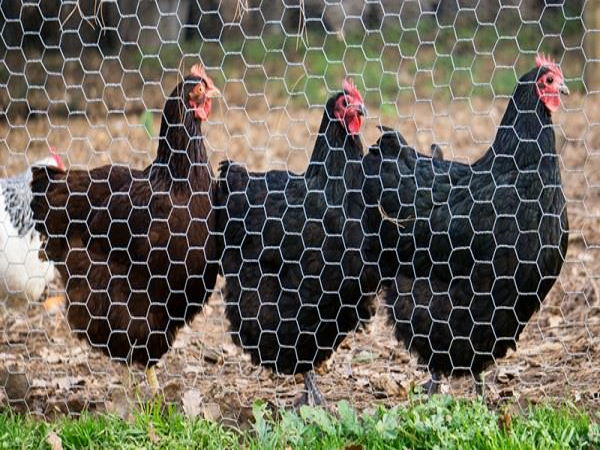
One of the hardest things in keeping chickens is keeping those chickens out of the reach of chicken predators. It seems that everything wants to eat chickens: But you’re smarter than they are. Here’s how to keep your hens safe.
Most common chicken predators include;
- Neighborhood dogs
- Chicken hawks
- Feral and domestic cats
- Bobcats
- Owls
- Snakes (chicks)
- Rats
Before you embark on constructing a poultry house, visit a few farms near you to come up with better ideas on what works best for you. There are different types of chicken coops and an ideal house should provide the birds with a comfortable environment and protect them from the extremities of weather such as rain, wind, sunshine, diseases and predators.
Wood, unlike iron sheets, is sold per feet and different types of wood cost differently. For example, cypress costs more than pine, which in turn, costs more than grevillea.
There are basic considerations when making a poultry house but the kind of house you make, iron-sheet walled or stone depends on your resources.
So, here are a few recommendations in making a predator proof chicken farm and maximize the security of your business.
Precautionary Measures
Firstly, keep a compost pile far away from the chicken coop. Do not allow food scraps to linger and any that remains, ensure to clean up before night fall. Also, mow the grass or field near and around the coop. Also, an open field without cover is a deterrent to any lingering predators.
If there is a serious problem with hawks and owls, consider covering the chicken coop especially those that feed during the day in an open environment with hawk netting.
The most rudimentary measure suggested is;
Mud Wall
In a backyard setting this would be the best way to protect a chicken farm. A strong mud walled fence and building would be the best because mud is easy to acquire and more economically feasible to use in construction in a farm. It is easier to use and is one of the widespread method applied in poultry farming in Uganda. However, one must factor in with time cracks and walls that can weaken with time. Therefore, though efficient, more modern and efficient ways have been applied to achieve zero percent attacks from chicken predators.
Protect From Above
Secure the top of the chicken run with aviary netting or deer netting. This will help defend against predators such as chicken hawks as well as keep wild birds from mingling with your chickens (although, not their poop, so there can still be some transmission of diseases from wild birds to chickens even in the best of situations). Predator-proof the run. Bury the chicken wire or hardware cloth 12 inches deep all along the run to add an additional barrier against burrowing predators.
Use Wire Mesh/Hardware Cloth
Wherever you would use the chicken wire – window areas for ventilation, around the bottom, to make the run – use wire mesh instead. Some predators like feral cats will just rip open chicken wire and enter at will. Wire mesh (the finer mesh the better) is much more expensive but much more of a deterrent to all kinds of predators.
Protection From Burrowing Animals
Bury wire mesh at least 12 inches down all around the chicken coop to protect from rodents and other burrowing animals.
Make a Solid Floor
A solid floor will keep any burrowing invaders like rats or raccoons from getting in. It will take them more time to chew through a solid floor. Especially in conjunction with hardware cloth, this can be an effective approach.
Surround the Perimeter with Electric Net Fencing
This can be used in addition to basic precautions such as a coop floor and hardware cloth. Tiny invaders like mice may be able to sneak under without a shock since the very bottom string doesn’t always touch the ground, but anything like a raccoon that would climb a fence will get zapped and discouraged. The closer the electric net spacing, the more effective it is against smaller predators.
Warning
Be careful because electric net fencing can be an entanglement hazard especially with young children. It is a risk not worth taking in a neighborhood with a bevy of children. In big farms and serious poultry farmer, this measure should be used where the electric fence is switched on at night and the chicken are inside the chicken coop. During the day, it is advisable to turn it off.

One Reply to “Predator Proof Ways In Poultry Farming”
Thanks for the guidelines enlisted especially good for me with free range poultry in rural East Africa. Twice pythons have swallowed my hens.